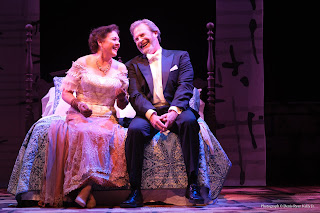Finally, a jazz tribute album that doesn't try to put arms on the Venus de Milo
Kevin Sun calls his all-absorbing take on the music of Charlie Parker "<3 Bird," which I guess has to be said, with pun fully intended, "Love Bird" (Endectomorph Music).
 |
| Kevin Sun digs deep into Bird. |
Parker's centennial was last year, but the pandemic has somewhat delayed many big-round-number observances. Sun has not made a survey of Bird compositions explicit, though he tells which parts of the legacy he draws upon in liner notes. Fortunately a tenor saxophonist (thus muting copycat pushback), Sun draws compatible performances throughout from bassist Walter Stinson and drummer Matt Honor, as well as, to various degrees, from Christian Li on piano and Fender Rhodes, Adam O'Farrill on trumpet, and Max Light, guitar.
Recorded in Brooklyn last February, the release joins a bunch of well-thought-out contributions musicians have forged out of the pandemic's interruption of concert and club gigging. Sun's dedication to the subject seems extraordinary; it may even exceed the near-universal veneration with which jazz musicians regard Bird and link their music to his. Here's what Sun wrote about a year ago on his blog (which is worth browsing on his website, linked above):
"I believe I've heard most of the publicly available recordings, although there are still a number of recordings that I haven't been able to get a hold of—most notably tunes from a spring 1951 performance supposedly in Boston, as well as a quartet performance as part of Jazz at the Philharmonic from November 1948. What surprised me most wasn't any single holy grail-type recording, but instead the consistency of the entire body of work, which is almost unerringly excellent and many times great."
The closest to an update is still stimulating: "Salt Peanuts," the perky tune with the title repeatedly vocalized, which Dizzy Gillespie got the President to sing at a famous, and rare, White House outdoor concert hosted by Jimmy Carter. A much-anthologized 1945 recording with the young Gillespie doing the vocal presents Parker as an equal partner, and the saxophonist's nailing the first solo, then returning for something more substantial, shows how indelibly he put his stamp on whatever he lent his pioneering efforts to.
 |
| The sheng: traditional Chinese reed instrument |
That hints at the Bird consistency Sun admires, which he doesn't try to replicate in updated vintage garb. Instead, his admiration for Parker guides the tenor saxophonist and his bandmates in fresh directions. "Dewey Square" is punningly reconceived as "Du Yi's Choir," and Sun picks up on his own heritage by turning for the only time on the disc to the sheng. Otherwise, he's a tenorman, with occasional firm yet shadowy outings on the clarinet.
The average track length is on the short side, which in itself pays tribute to how the recording limits of the 78rpm format forced concentration on the new style, emphasizing concision and immediate impact as Parker became introduced to jazz fans who couldn't necessarily hear him live.
Of the longer tracks, "Greenlit" brightly introduces this captivating set with its funhouse-mirror reworking of "Confirmation," a piece in which Parker combined Great American Songbook tunefulness with characteristic bop rhythms and accents. It's about the best possible introduction Sun could have made to how he wants, in his own terms, to address the wide expanse of Parker's innovations.



Comments
Post a Comment